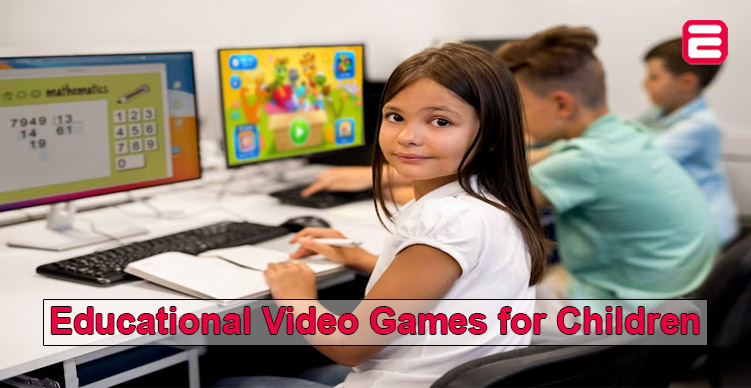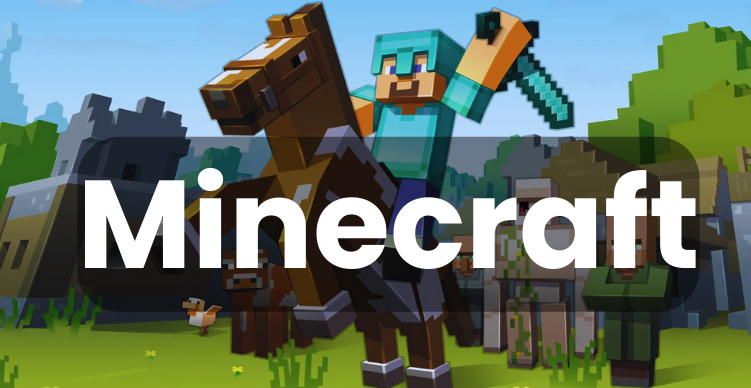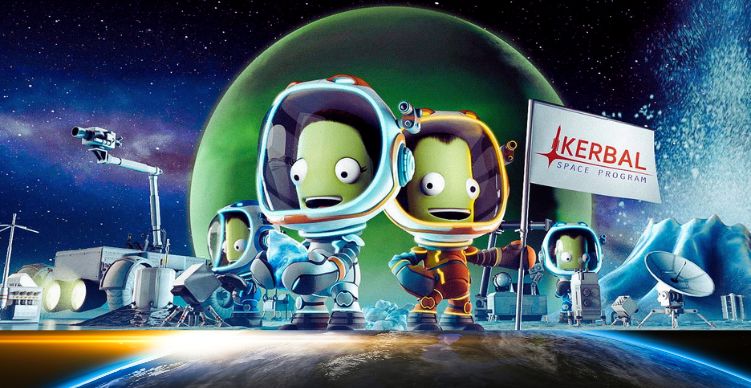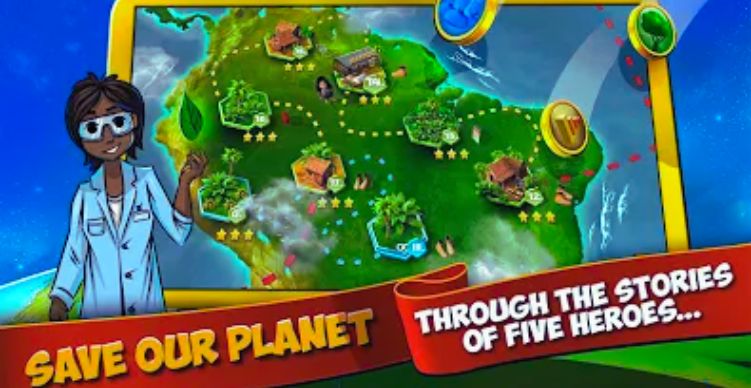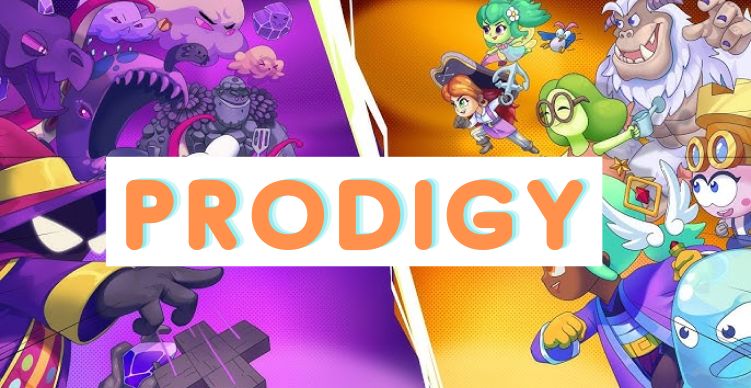As someone who has written about educational technology for many years, I’ve seen firsthand the evolution of video games for learning. When I started, educational games were often basic flash animations attached to the curriculum. But the tide has certainly shifted. With advanced computing power, even in smartphones, developers can now construct incredibly immersive game worlds packed with authentic educational value. Educators are also increasingly embracing the motivational potential of video games. In this guide, we will discuss the educational games for children.
Unlocking the Power of Educational Video Games
Through my work, I’ve seen astounding outcomes from well-designed educational games. Games can provide a digital playground where children freely investigate academic concepts through trial-and-error, creatively problem-solve, and collaborate. Educational games motivate kids to interact repeatedly with the subject matter, assisting them in truly mastering skills.
Beyond academics, video games nurture valuable traits like resilience, critical thinking, and complex communication. As an avid gamer myself, I’m also amazed by how educational games stealthily educate while keeping players engrossed. By seamlessly integrating learning objectives into engaging gameplay and narratives, children absorb knowledge almost effortlessly while having fun.
Why This Guide Matters
As both an enthusiastic gamer and someone passionate about learning, I’m excited to share my insights on how parents and educators can harness the power of video games. With gaming becoming ubiquitous among youth today, I want to help adults make informed decisions when selecting games. I aim to cut through the hype and provide comprehensive, experience-based advice on achieving the right balance. While video games can enrich learning and development, they should complement, not replace, other vital activities. With moderation and wise choices, games can nurture a lifelong love of learning. I hope this handbook empowers adults to maximize the educational potential of gaming for children.
The Best Educational Video Activities for Youngsters
Here are mentioned below:
Minecraft
With over 140 million monthly active users, Minecraft is effortlessly the world’s most fashionable video activity. As an avid player myself, I’ve been surprised by the artistic possibilities Minecraft provides. To make it through Survival mode, players must collect resources and build structures, necessitating strategy, preparation, and logical reasoning. Creative mode provides boundless buildings with diverse materials, fueling youngsters’ innovation. Minecraft also has multiplayer worlds, permitting united formation and problem-solving. Through adapted Minecraft servers and worlds, teachers have tailored the activity to instruct diverse subjects like science, math, history, and coding. With versions across consoles, PC, and mobile, Minecraft is reachable for all ages.
Portal
The puzzle-based first-person activity Portal has gotten widespread praise for its ingenious activity design. Players must solve challenges employing a “portal gun” that makes linked doorways through space. To solve these challenges, visualizing spatial relationships, forming theories, testing theories, and deducing solutions using logic, math, and physics principles are needed. With its minimalist visuals, subtle narrative, and refined activity flow, Portal has a plea across age groups. While some advanced levels need a mature attitude, the initial stages can cultivate spatial reasoning talents in young youngsters. The activity is available on PCs, consoles, and Android.
Kerbal Space Program
Combining rocket science simulation with imaginative gameplay, the Kerbal Space Program has become a celebrated way to learn astrophysics and engineering. Players direct a race of aliens trying to explore space with realistic orbital mechanics and aerodynamics. To succeed, players need to master concepts from gravitational force to multi-stage rockets. While challenging, the game scaffolds learning with information panels, virtual textbooks, and low-stakes trial and error. Players can also express creativity by designing vessels and customizing missions. With its authentic scientific foundation and sense of discovery, Kerbal has earned acclaim from NASA and educational organizations.
World Rescue
Developed in collaboration with experts from the State Department and National Geographic, World Rescue immerses kids in real-world issues. Players try to solve global problems like pollution, disease, deforestation, hunger, and preserving ecosystems. To succeed, they must interpret geographic data layers, analyze patterns, and weigh diverse perspectives. World Rescue promotes systems thinking, active learning, and empathy. A companion AR app brings the 2D game map to life, bridging digital play with the player’s local environment.
Prodigy
Prodigy Math Game is one of the most popular educational games, with over 100 million users worldwide. In a vibrant fantasy world, Prodigy turns the core math curriculum into an epic adventure. Kids solve math battles to help wizard characters level up and progress through evolving storylines. The game adapts dynamically based on players’ proficiency to provide the right level of challenge. Prodigy covers arithmetic, geometry, fractions, algebra, and more for grades 1-8. The company has also released spin-offs for science, language arts, history, and geography. Available on browsers and as an app, Prodigy can be a key learning supplement at home or in the classroom.
Choosing the Right Educational Video Games
It is important to choose the right games that help to boost skills so kids can learn productive things.
Age-Appropriate Selection
As an involved parent, choosing games tailored to my kids’ developmental stages has been crucial. Games with just the right level of challenge enhance learning, while overly difficult games lead to frustration. Simple games for early elementary school should focus on basic reading skills, vocabulary, math, and exploration. Later in elementary school, more complex multiplayer and strategy games teach social interaction, critical thinking, and problem decomposition. The middle school years are perfect for story-rich roleplaying games that motivate kids to absorb new knowledge to advance. Every child is different, so try various games even if they seem below or above grade level.
Read Also: Google Classroom Games- How to Gamify your Google Classroom
Aligning Games with the Curriculum
When my daughter struggled with fractions in 5th-grade math, I tried to find video games to reinforce these concepts. After much research, I discovered an obscure title called Frax that made mastering fractions fun through creative mini-games. When used strategically, video games like this can build fluency with classroom material. Try to match games to your child’s existing learning objectives and discuss these connections together. If they are playing a game related to what they’re covering in school, it will solidify their learning.
Reading Reviews and Viewing Gameplay
As someone who evaluates educational apps, I vet games before introducing them to my kids. I read multiple reviews, especially from trusted sources like Common Sense Media, that break down learning aspects. I also watch gameplay videos to gauge the reality of the experience and whether it aligns with my child’s interests. This due diligence prevents disappointments from games that don’t live up to their marketing claims in educational value or fun. Demos and free trial periods can further help assess a game’s suitability.
Setting Screen Time Limits and Encouraging Active Play
Games may be educational, but too much gameplay still carries risks. As an advocate for digital well-being, I impose reasonable time limits when my kids game. I also incentivize self-regulation by setting stopwatch timers. After an hour of gaming, I have them switch gears and play outside or with board games to work their bodies and minds in diverse ways. Kids thrive when gaming is one facet of a stimulating childhood alongside physical activity, family time, reading, and rest.
Read Also: Funbrain Review – All You Need to Know
Maximizing the Educational Potential with Games
The undersection will provide you a brief detail how you can maximize the educational potential with video games.
Co-play and Conversations
Playing games alongside my kids and talking about the experience together are some of my favorite memories. Educational games create opportunities for meaningful dialog that strengthens your bond. Ask your child to explain their strategies and creative problem-solving methods. Share your approach, and model good sportsmanship and resilience. By co-playing games, you convey that their interests are important to you. And your involvement helps sharpen their critical thinking and communication abilities.
Using Games as a Springboard for Further Exploration
After my son became obsessed with the solar system from playing the Kerbal Space Program, I fostered his interest by checking out library books about real astronomy missions. We built model rockets and watched documentaries like “Apollo 13” together. High-quality educational games naturally spark children’s curiosity. With some guidance, their virtual experiences can motivate real-world learning through books, projects, field trips, and discussions.
Fostering Creativity and Experimentation
Open-ended games like Minecraft and Roblox provide digital sandboxes for creativity. When my daughter was new to Minecraft, I encouraged her to set her own goals beyond just getting better gear. I prompted her to imagine designing her dream treehouse, recreating our neighborhood in-game, and even using circuits to make Minecraft factories, pushing her to explore possibilities deeply. By encouraging kids to experiment and iterate on their ideas in games, we nurture their innate innovation.
Educational Video Games by Subject
Most of the developers have created subject-related games to boos the skills of students.
Math and Logic
Games like DragonBox, Motion Math, Calcularc, Math Blaster, and Frax make learning early math skills interactive and intuitive. For older kids, games such as Opposing Force, Mystery Math Town, and Math Breaker integrate arithmetic, algebra, and geometry concepts into deep gameplay. Logic-focused brain games like Thinkrolls, Chess, and Zoombinis build critical thinking.
Science and Exploration
The suite of National Geographic Explore games enables kids to dive into ecosystems, space, the human body, and more through interactive models. Animal simulation games like Wolfquest and Land Scapes promote learning about species and conservation. Universe Sandbox, SpaceChem, Cellcraft, and other “simulation-sandbox” games turn exploring scientific systems into engaging gameplay.
History and Geography
The Oregon Trail, an iconic edutainment game, teaches 19th-century American history and geography by simulating pioneer life. Civilization inspires kids to think like rulers of historic empires, making decisions based on geography and resources. Assassin’s Creed Discovery Tours transform the games’ rich historical settings into learning adventures minus combat.
Language and Arts
Scribblenauts encourages linguistic creativity by letting players summon any object they can type to solve puzzles. ChuChu Rocket builds problem decomposition and planning skills as players strategically guide characters—art-focused games like Orisinal blend visual aesthetics with gently challenging gameplay requiring pattern recognition and precision.
Special Needs and Inclusive Gaming
Animal Island, Captain Comfy, and Social Express were designed to build social skills for autistic kids by portraying social situations and cues. Dyslexia Games focus on phonics and reading comprehension. Communication aids like the Sounding Board enable nonverbal children to participate in gameplay.f empowerment. You can also find great science games for kids to spark creativity and learning.
The Role of Parents and Educators
Read below about how parents and educators help kids to learn through educational video games.
Supporting Educational Gaming
As an education blogger, I often encounter misconceptions that educational video games are not “real learning.” However, research shows that well-designed games advance skills from literacy to complex problem-solving. We must embrace this medium as the potent learning tool it is. Parents and teachers play key roles in setting kids up for success with games; this includes teaching gameplay mechanics, moderating screen time, connecting games to other activities, and discussing what they’ve learned.
Overcoming Challenges
Every medium is flawed, and even great educational games have limitations. Poorly designed games fail to engage, and even quality games cover limited knowledge domains. Many equate gaming with mindless entertainment rather than learning. Excessive gameplay has risks. But we can overcome these challenges with wisdom, communication, and balance. The key is harnessing games’ motivational force to complement a diverse curriculum and lifestyle. Games that are used judiciously provide value, unlike any other teaching method.
Gamifying Education
Educators shouldn’t view games as separate from learning. With creativity, teachers can integrate game principles into the classroom to enhance instruction. Setting up collaborative teams and “missions,” integrating quests and competitions, and using scoring systems are just some techniques to motivate students. When the real world becomes a game, kids strive to unlock achievements, level up skills, gain powers, and win. Opening the classroom to game-based learning meets students’ comfort with interactivity and play.
Conclusion
Educational video games have come a long way since crude edutainment titles like Math Blaster. Today’s games integrate sophisticated design to immerse kids in interactive worlds with authentic learning. Looking ahead, emerging technologies and education research will only enhance gaming’s learning potential. We have an unprecedented opportunity to captivate young minds and empower the leaders of tomorrow through well-designed gameplay. Games that are used prudently promise to make learning fun again for students worldwide.

